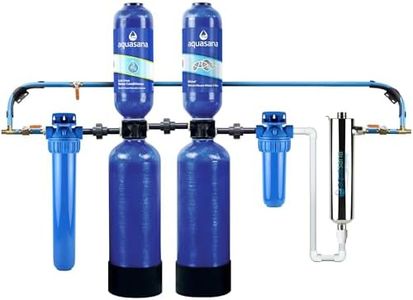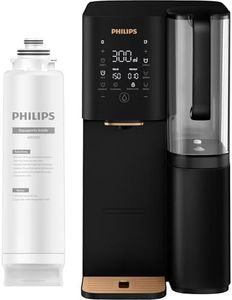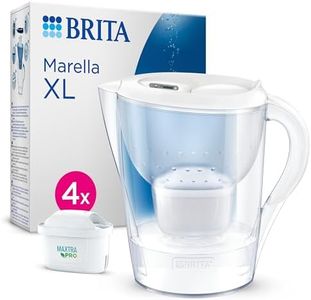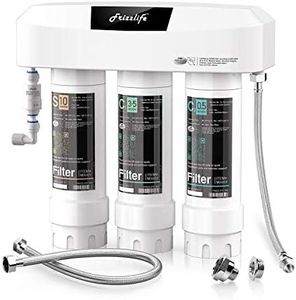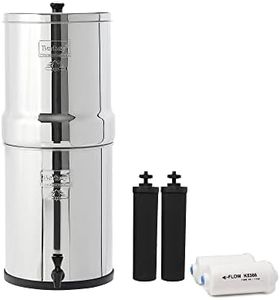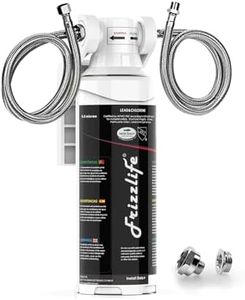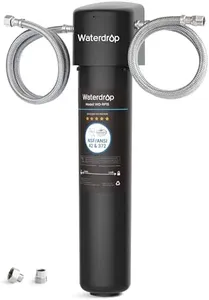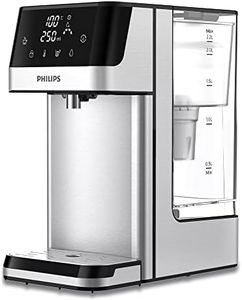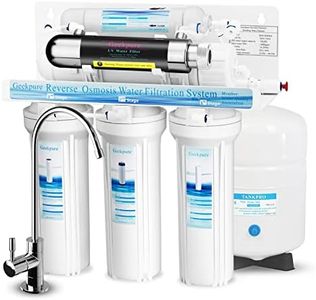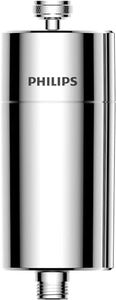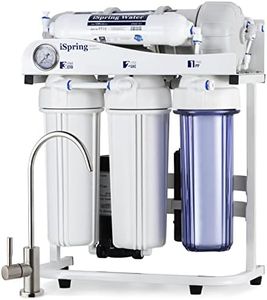We Use CookiesWe use cookies to enhance the security, performance,
functionality and for analytical and promotional activities. By continuing to browse this site you
are agreeing to our privacy policy
10 Best Water Filter Systems
From leading brands and best sellers available on the web.By clicking on a link to a third party's website, log data is shared with that third party.
Buying Guide for the Best Water Filter Systems
Picking a water filter system is an important decision because it impacts the quality and safety of the water you drink and use at home. Each household or user may have different needs depending on the type of water supply (city, well, etc.), the desired level of filtration, and the amount of water you want to filter. When considering a water filter, think about what you want to remove from your water (like chemicals, sediments, or microorganisms), your daily water usage, how convenient you want installation and maintenance to be, and where the system will be used (whole house, under sink, or countertop).Filtration MethodThe filtration method refers to the technology used to clean your water, such as activated carbon, reverse osmosis, UV light, or mechanical filters. This is important because different methods remove different types of contaminants. Activated carbon is great for improving taste and removing chlorine, but may not get rid of bacteria. Reverse osmosis can remove a wide range of contaminants, including heavy metals, while UV systems focus on disinfecting the water from microorganisms. If you are mostly concerned about taste and basic chemicals, carbon filters may suffice. If you need protection from bacteria or heavy metals, look at systems that combine several methods or offer advanced purification.
Contaminant RemovalContaminant removal describes the types and amounts of substances the filter can eliminate from your water, such as chlorine, lead, bacteria, or pesticides. This matters because you want to target the specific issues present in your water supply. To choose, check your recent water quality report or do a home water test. If your main issue is hard minerals, look for softening features; for biological threats, focus on microbiological filters. Matching the filter's certification or test results to your specific concerns will ensure you get the protection you need.
Filter Capacity and LifespanFilter capacity and lifespan tell you how much water (in gallons or liters) can be filtered before the cartridge needs replacement, and how often that will be. This is important because frequent replacements can be inconvenient and costly in the long run. Small-capacity filters (like pitcher or faucet models) may last only a few months, while whole-house or under-sink filters can last six months to over a year. If you have a large household or high water usage, go for higher capacity systems to minimize maintenance. If you only need filtered water for drinking, a lower capacity might be enough.
Flow RateFlow rate is the speed at which water passes through the filter, usually measured in gallons per minute (GPM). This matters because slow flow can be frustrating, whereas a higher flow keeps up with your household’s needs. Basic pitcher filters might have slow flow—fine for a single person, but not great for a family or for use in cooking. Whole-house or larger under-sink systems typically provide faster flow suitable for showers and multiple taps. If you need filtered water at several points in your home, prioritize a system with a higher flow rate.
Installation and MaintenanceInstallation and maintenance refer to how easy the filter is to set up and how often you need to change out parts or clean it. Some filters simply attach to your faucet, while others require more complex plumbing work. Maintenance needs also vary—with some requiring professional service, while others can be done by the user. If you want a hassle-free experience or live in a rental, a simple countertop or pitcher filter is best. For those comfortable with DIY or who want a permanent solution, consider an under-sink or whole house system, but pay attention to whether you can easily access and replace filters.
Certification and TestingCertification and testing indicate if the system has been independently checked to make sure it does what it claims. Look for certifications from organizations like NSF or WQA, as this assures safety standards. This is important because many filters claim performance they don’t actually deliver. If your water supply has health concerns, always choose a filter with proven certifications for the contaminants you want removed. For basic taste and odor, this is less critical, but it’s always good to know your filter is backed by independent testing.
